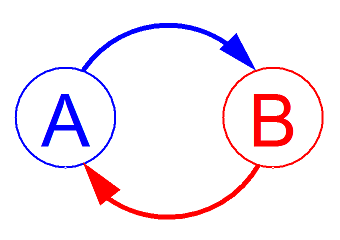"I welcome their contempt"
The USA's 2016 presidential nomination contests have been nothing short of incredible.
It doesn't matter your particular political affiliation, or philosophy, or world view - there has been something for everyone to love or hate or be embarrassed by, seemingly every week. And if you are someone that doesn't care at all about politics, you still would have to admit that the campaigns have at least been amusing theater.
I don't normally, (ever, I think), write about politics, and this post is not really about politics in the classic sense, but rather is inspired by a recent quote from one of the major candidates still left standing - Uncle Bernie Sanders.
I just want to share the quote, and a tiny bit of context and then I am out for the weekend.
Here's Bernie, (citation to Business Insider)
Democratic presidential candidate Bernie Sanders said on Wednesday that he welcomed a spat with several high-profile American CEOs who criticized his rhetoric.
Sanders slammed Verizon CEO Lowell McAdam and General Electric CEO Jeffrey Immelt over their recent criticism of his populist economic agenda.
"I don't want the support of McAdam, Immelt and their friends in the billionaire class. I welcome their contempt," Sanders tweeted on Wednesday afternoon.
None of the details of Sanders' plans or the agendas of McAdam or Immelt matter to the point I care about and why I wanted to post about this which is this: You are defined as a person and as a professional and leader by your enemies as much as by your allies and friends.
Sanders is thrilled that titans of industfy like Immelt are speaking out against him and his plans. These are exactly the kinds of enemies Sanders wants to make as he pushes his populist, stand-up-for-the-working-man rhetoric.
Sometimes you seek out enemies, sometimes you just make some - either way they speak volumes about who you are.
I think you do want some enemies. That means you stand for something. Just make sure you have the right enemies.
And make sure you know who they are too.
Have a great weekend!

 Steve
Steve
